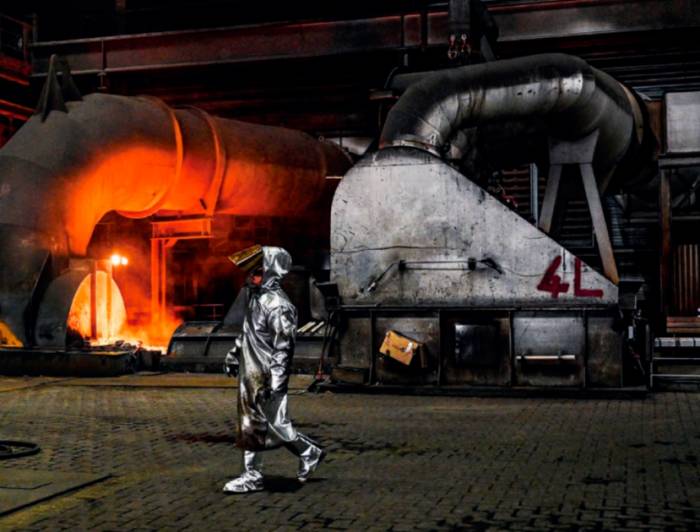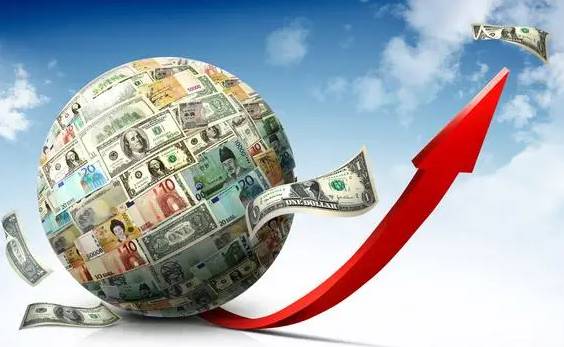The German automotive industry is facing multiple challenges such as declining sales and profits, difficulties in the transition to electrification, reduced competitiveness in the international market, and supply chain crises.
On September 2, 2024, Volkswagen Group announced that it is considering closing "at least" one large domestic car manufacturing plant and a domestic parts factory, and will be forced to terminate the employment protection agreement that has been in place since 1994 to further reduce costs.
If this plan is eventually implemented, it will be the first time in the 87-year history of Volkswagen Group to close a factory located in Germany.
Volkswagen is hit by multiple blows.
Established in 1937, Volkswagen Group, headquartered in Wolfsburg, Lower Saxony, Germany, is one of the world's largest automotive companies, with brands such as Volkswagen, Audi, Skoda, Porsche, and others.
Volkswagen employs approximately 680,000 people worldwide, with nearly 300,000 in Germany, making it the largest employer in the country.
On September 2, Herbert Diess, Chairman of the Board of Management of Volkswagen AG and CEO of Volkswagen Group, stated in a declaration: "The economic environment has become more severe, new players are entering Europe, and Germany, as a manufacturing base, is falling further behind in terms of competitiveness."
Volkswagen's cost-cutting plan launched in 2023 failed to achieve its original goals because it could only reduce costs by reaching agreements with trade unions to offer early retirement and voluntary layoffs to employees.
Now, Volkswagen's intention to break its promise not to lay off workers in Germany before 2029 will undoubtedly lead to significant conflicts with the unions.
Discussions about closures and layoffs involve the company's main passenger car brand, Volkswagen.
Insiders revealed that Volkswagen factories in Osnabrück, Lower Saxony, and Dresden, Saxony, could be potential targets for closure.
In recent years, Volkswagen Group has suffered multiple blows: after the Russia-Ukraine conflict, Germany lost cheap Russian natural gas, and the soaring energy prices have increased Volkswagen's costs; the deteriorating economic outlook in Germany has also dragged down Volkswagen's sales; in addition, Volkswagen is also facing a shrinking market share in China, its most profitable market.
Over the past five years, Volkswagen Group has lost nearly one-third of its market value, making it the worst-performing among major European car manufacturers.
Due to the long-term low-profit margins of Volkswagen's main passenger car brand, the management hopes to improve the group's financial situation by reducing costs.
However, in the process of transitioning to electric vehicles, European consumers' demand for electric vehicles is lower than expected, which has hit European car manufacturers, including Volkswagen.
Volkswagen's commitment not to lay off workers in Europe before 2029 has tied its hands in cost reduction.
In June 2023, Volkswagen's main passenger car brand announced that it hoped to cut costs by 10 billion euros before 2026 and achieve a target operating profit margin of 6.5%.
However, in the first half of 2024, the operating profit margin of Volkswagen's main passenger car brand has already fallen to 2.3%.
Volkswagen stated that the performance report for the first half of this year indicates that it cannot achieve the goal of cutting costs by 10 billion euros before 2026 without taking bolder measures.
According to Volkswagen's performance report for the first half of this year, the operating profit of Volkswagen's main passenger car brand has dropped from 1.64 billion euros last year to 966 million euros.
Despite this, Volkswagen Group remains the highest operating income car manufacturer in Europe.
Its luxury brands such as Audi and Porsche have higher operating profit margins than the main passenger car brand aimed at ordinary consumers, but the situation is also gradually deteriorating.
It is hard to imagine that the once-proud Volkswagen Group would now consider closing factories in Germany.
However, before Volkswagen, there have been examples of other well-known European and American car companies being forced to close domestic factories.
Coincidentally, not long before Volkswagen announced the consideration of closing domestic factories, I watched a related documentary online.
The title of the documentary is "From Detroit to Bochum - What Happens After the Disappearance of the Automotive Industry?
", exploring the impact of the decline of the automotive industry on the American car city of Detroit and the German car city of Bochum.
Some former car manufacturing workers interviewed in the documentary expressed the painful experiences of losing their careers, income, identity, and meaning in life after the closure of the factories.
For a long time, the automotive industry has been a source of pride for Germans.
However, now, the German automotive industry is facing multiple challenges such as declining sales and profits, difficulties in the transition to electrification, reduced competitiveness in the international market, and supply chain crises.
Carsten Brzeski, Global Macro Head of ING Research, said that Volkswagen's forced consideration of closing domestic factories highlights the consequences of Germany's stagnant economy for many years and the lack of structural change.
"This may be an alarm bell that should have been sounded earlier.
If such an industrial giant has to close domestic factories, it means that Germany's economic policies need to be adjusted more significantly," he said.
The latest data released on the day Volkswagen announced the consideration of closing the factory showed that Germany's manufacturing purchasing manager index in August of this year was 42.4, the lowest since March this year, significantly lower than 43.2 in July, and has been declining for three consecutive months; the decline in new orders, procurement activities, and employment is greater than the decline in July.
Cyrus Rubia, Chief Economist of Hamburg Commercial Bank, said: "The duration of the recession in Germany's manufacturing industry is longer than anyone expected."
Previously, Clemens Fuest, President of the Munich Institute for Economic Research, pointed out that Germany faces the risk of "deindustrialization", and some industries such as the chemical and automotive industries are experiencing contraction, and car production has been declining for several years.
The difficult transition of the European and American automotive industry to electric vehicles has further exacerbated the difficulties of the German automotive industry, including Volkswagen.
Data from the German Federal Motor Transport Authority showed that in July this year, the registration of pure electric vehicles in Germany fell by 36.8% year-on-year, and the market share of newly registered electric vehicles in Germany in the first half of the year fell from 15.8% last year to 12.5%.
Volkswagen Group's transition to electrification is particularly not smooth.
Due to poor sales of electric vehicles in the first half of this year, Volkswagen indefinitely postponed the launch of its latest electric sedan in the United States.
European and American car manufacturers are also facing increasingly strong competition from car manufacturers from other regions, especially from Chinese electric vehicle manufacturers with lower costs and higher profit margins.
Due to lower-than-expected demand, Ford Motor Company canceled the plan to produce a new electric SUV in August this year and postponed the plan to produce an electric pickup; General Motors, Mercedes-Benz, and Bentley under Volkswagen Group also postponed the plan to produce electric vehicles; Tesla, the pioneer of electric vehicles, is also trying to increase the continuously declining sales volume.
Although the EU imposed anti-subsidy tariffs on electric vehicles from China, many Chinese manufacturers can still sell electric vehicles in Europe at a profit due to their huge cost advantage.
Closing factories is not easy.
Industry insiders believe that the announcement made by Volkswagen Group on September 2 means that the first major conflict between the group's CEO Herbert Diess and the trade unions will erupt.
Previously, it was thought that Diess was better at building consensus and did not often conflict with the trade unions like his predecessor Diess.
But this time, the decision made by the group's management is unusual.
The trade union power of Volkswagen Group is very strong, and the organizations representing the interests of the group's workers include the largest industry union in Germany - IG Metall, and the Works Council representing employees at various workplaces within the Volkswagen Group.
After the announcement of the group's management considering closing domestic factories, the chairman of the Works Council, Daniela Cavallo, has already stated that the trade unions will firmly oppose the management's proposal.
Cavallo said in an interview with the Volkswagen Group's internal network that the management has made "many wrong decisions" in recent years, including not investing in hybrid vehicles, not accelerating the development of affordable electric vehicles, etc.
The female trade union leader believes that the management should not close factories, but should reduce complexity and use the synergies of various different plans of the Volkswagen Group.
Cavallo said to the workers: "As long as I am here, I will not let the management easily close the factory!"
The German Metalworkers' Union also stated that the threat of layoffs and factory closures is an irresponsible decision that will "shake the foundation of the company."
The union wrote in a statement: "The austerity plan has been upgraded, which will lead to a major conflict between management and trade unions."
The German Metalworkers' Union has defeated several reform attempts by Diess's predecessor.
In addition, in the powerful Supervisory Board of Volkswagen AG, worker representatives occupy half of the seats.
The Supervisory Board is responsible for supervising the Board of Management, appointing members of the Board of Management and the group's CEO, and deciding on the remuneration plan for members of the Board of Management.
It is also worth mentioning that in Lower Saxony, where the headquarters of Volkswagen Group is located, the state government owns 20% of the group's shares and is the second-largest shareholder of Volkswagen.
When labor disputes occur, the Lower Saxony government often stands with the trade unions of Volkswagen Group.The governor of the state, Stephen Vail, who is also a member of the Volkswagen Group's board of directors, acknowledged that Volkswagen does indeed need to take measures to reduce costs.
However, he called on Volkswagen to find other ways to cut costs and avoid closing factories.
In a public statement, Vail emphasized, "The state government will pay special attention to this matter."






























Comments (0)
Leave a Comment